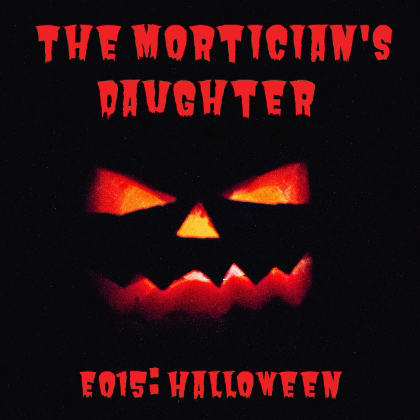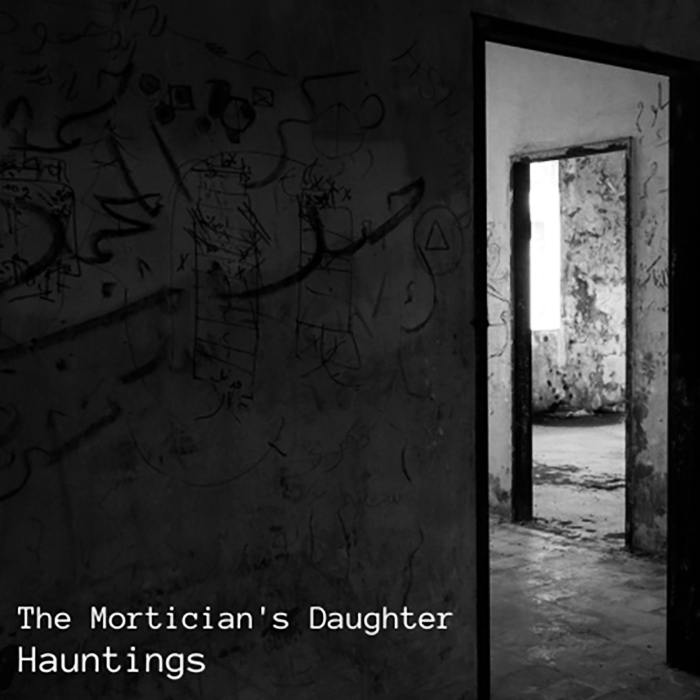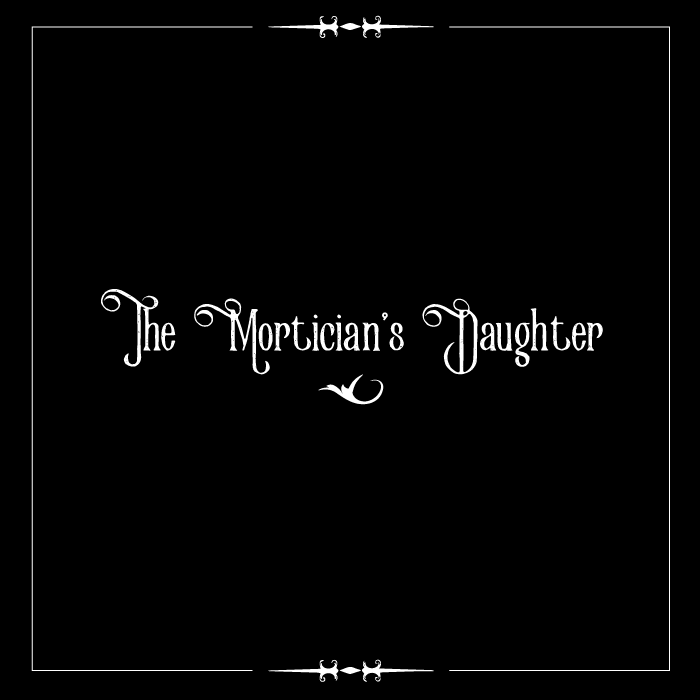Episode Transcript
Hey all you hep kids and hellcats, it’s been too long since we’ve crossed paths. Far too long, indeed. As an immunocompromised individual and an essential worker waiting for a vaccine, I want you all to know I am striving to remain patient and optimistic, as best I can, while the mechanisms of society turn.
You know, unless it’s one of those Mario Savio put-your-body-on-the-gears moments, patience, hope, and as much tenacity as you can muster may serve you well in this world. However, we’re not really here to talk about this world so much. We’re here to talk about otherworldly things.
And I’ll get to that… in just a moment. Before that happens, I would like to acknowledge this time of shared despair that we are all taking part in. Whether a result of my professional life or just my personality, people often talk to me during their times of grief or about their experiences of personal loss. This pandemic has us all frozen in this moment of trauma and despair that we haven’t yet clambered out of yet. We can’t even begin the process of grief because we’re still in the surviving bit.
So I’m not going to apologize for the delays between episodes, just like I’m not apologizing to my publisher for not working to promote my novel, and I’m not going to apologize for drinking coffee from sunup to midnight even though my doctor tells me the caffeine might just burn straight through my stomach into my soul. Maybe when I climb out of this dark but cozy pit all vaccinated in summertime I’ll be ready to renegotiate.
And, in the interest of making apologies mean something again, let’s all stop apologizing for dumb things like needing time and space to deal with each crisis as it comes.
I had a swath of interesting topics to elaborate on this year. Twelve, to be exact, but I’ve been busy.
And today, rather than deep diving one particular topic, I thought it might be fun to wander the tide pools of miscellany. Some of these are odds and ends that I’ve stumbled across. Others are tidbits passed along to me by friends or listeners… which are basically the same because I consider every listener a friend and every one of my friends better be listening or we’re not friends any more.
I’m just kidding. Probably.
Okay, moving right along, I would like to start by pointing out that I’m not the only person who approaches death with a measure of humor. Quite the contrary, actually. To provide proof, we just need to make a hop, skip, and jump from the sunny Sonoran to the also sunny, but perhaps more temperate Los Angeles, California.
A cemetery stroll might lead you to some Hollywood comedian of yesteryear ready to leave the world with one last humdinger at the final curtain call. At the Hollywood Forever Cemetery, you might come across Mel Blanc, the man of 1000 voices, including Bugs Bunny, whose gravestone reads, “That’s All Folks.
At Pierce Brothers Westwood Village Memorial Park & Mortuary in Los Angeles, media mogul and famed announcer Merv Griffin tells fans on his gravestone that he will not be back after this message.
One of my all time movie favorites left behind one of my favorite epitaphs at Pierce Brothers as well. Of course, I’m speaking of Billy Wilder whose tomb reads: "I'm a writer but then nobody's perfect."
Now, rumor has it that the grave of W.C. Fields bears the inscription “I’d rather be in Philadelphia,” but that’s based on a bit he did that was shared as a mock epitaph in an issue of Vanity Fair back in 1925. Instead, he was cremated and his ashes intermed in a columbarium at Forest Lawn Memorial Park Cemetery in Glendale, California with just his stage name on the marker.
Let’s go back to the Hollywood Forever Cemetery for a moment. That might warrant a stop on your city tour just because. Cecil B. DeMille, Rudolph Valentino, Douglas Fairbanks, Chris COrnell, Johnny and Dee Dee Ramone, Peter Lorre, Jayne Mansfield, Judy Garland, and even her little dog too are laid to rest here. And, yes, I am referring to Toto who has his own Toto statue to mark his grave.
Perhaps the most striking tombstone of the past century is that of Leonard Matlovich whose grave resides in the Congressional Cemetery. It reads, “A Gay Vietnam Veteran: When I was in the military, they gave me a medal for killing two men and a discharge for loving one." Leonard died on June 22, 1988 at the age of 44 from HIV/AIDS. His gravestone does not include his name as he intended it to be a memorial for all gay service members, but you can find a bronze plaque with his name near his old apartment in the Castro District of San Francisco.
It’s not just the rich &/or famous who leave behind memorable grave markers. No, my friends, this morbid humor is within the reach of many mere mortals. Take, for example, Ezekial Aikle who, after passing at the age of 102, claimed on his tombstone that "The Good Die Young." Or Sir John Strange whose final claim reads "Here lies an honest lawyer, And that is Strange." Get it? Sir John Strange? Strange? Nevermind.
Moving along…. I’m also rather partial to the spousal lamentations as one departs this world. Maybe that just because my fella and I are still in that newlywed phase. You know, where we love one another and actually enjoy each other’s company. We’re only twelve years into our budding romance though so ask me again in another thirty.
Somewhere in Ribbesford, England sits a cemetery and in that cemetery sits a gravestone that reads: :The children of Israel wanted bread And the Lord sent them manna, Old clerk Wallace wanted a wife, And the Devil sent him Anna.” I don’t know if I feel bad for Wallace or Anna, but I have a sneaking suspicion I would get on with the latter just swimmingly.
Here in the States, you can find the burial spot of one Mr. John Barnes who left behind a young bride. I know this because she declared as much on his headstone. “Sacred to the memory of my husband John Barnes who died January 3, 1803 His comely young widow, aged 23, has many qualifications of a good wife, and yearns to be comforted.”
Now, that grave is located in Vermont where you can also find the memorial of this staunchly private person whose epitaph reads: “I was somebody. Who, is no business Of yours.” I must say, this last one really resonates with me. Like, a lot a lot.
Okay, okay, let’s get out of the graveyard…. Uh, sorta…
Maybe some of you are wondering why I started this podcast. Maybe not, but I’m going to talk about it anyway. Recently, I was interviewed about my debut novel and the writer interviewing me asked if my background - meaning my personal and family history in the funeral industry - led to my gruesome proclivities. I have to say, the question surprised me a little because I never really thought of myself in those terms before. At the time, I said I wasn’t sure. That maybe I couldn’t see the fishbowl because I was in the fishbowl.
But rather than rejecting the descriptor outright, I rolled it around in my head. Was I gruesome? I mean, by definition “gruesome” means “causing great horror; horribly repugnant; grisly.” I don’t really see myself in those terms, but I think that our society tends to treat death in those terms. That was something I wanted to address in the context of this podcast. To talk about death and dying in varying terms and approach it from different angles. Through science and stories. To explore different philosophies and beliefs. And to have some fun with it.
This next story is more peculiar than funny. I would say a once-in-human-history type event which is actually far more rare than most people think. Obviously, I’m speaking of the Great Molasses Massacre, also known as the Boston Molasses Disaster.
In 1919, an enormous tank responsible for storing molasses exploded and sent 2.3 million gallons spewing out into the streets of Boston. Twenty-one people died and roughly 150 were injured. “The wave of syrup — some reports said it was up to 40 feet tall — rushed through the waterfront, destroying buildings, overturning vehicles and pushing a firehouse off its foundation.” [1]
People died in the initial explosion and the wave that followed, but a Harvard researcher explained about half the people that died did so “basically because they were stuck.” One was a firefighter who managed to stay alive for almost two hours before drowning. [1]
This Harvard researcher I just referenced is one Mr. Rubinstein, a professor whose students took up the task of uncovering the thermodynamic mystery behind the catastrophe.
The New York Times did an article about Mr. Rubinstein’s Introduction to Fluid Dynamics class and the Boston Molasses Disaster. In it, they also quote the Boston Globe from 1968, as such, “Men and women, their feet trapped by the sticky mass, slipped and fell and were suffocated. The stronger tried to save others, and many of them died for their heroism.”
For the past hundred years, the Molasses Massacre has been a tragedy that has continually resurfaced with the press and with collectors of strange or grisly stories and history buffs alike. Well, that, people studying fluid thermodynamics, and structural engineering, I guess.
The Boston Molasses Disaster was certainly one of those stories that I thought would be interesting to share with others and that was before I even realized they’d cracked that whole physics mystery surrounding the calamity. Now, I feel like we have our conclusion so thank you to Mr. Rubinstein and your students. Way to tackle that one.
This incident is easy to have mixed feelings about. In college, I had a group of professors who had a way of saying something was “both/and,” meaning a thing didn’t need to be either/or. Letting something be just what it is doesn’t mean you have to feel one way or another about it, or push it into one place or some other place. The Molasses Massacre was a tragedy beyond measure, certainly, but it was also an attack by pancake syrup.
You can feel both/and. I can say with almost certainty that these professors, whom I very much admire and hold true affection for, would not appreciate the application of this phrase to the following scenarios, but I would like to remind them and anyone else from my college days listening, I always was troublesome.
I’m calling this next segment: Deaths you don’t want to laugh at
And we’re starting it off with Denver Lee St. Clair who was killed by his stepson, Brad Lee Davis, with an atomic wedgie. Yep. You know, where you pull the back of someone’s underwear up over their head? Yeah, that’s what Brad Lee Davis said he did to his stepdad during a fight. Just gave him an atomic wedgie, no big deal. And Brad did give Denver an atomic wedgie and then proceeded to strange the man with his own underwear. That’s too far, dude. The coroner uncovered some blunt force trauma that also helped Denver Lee St. Clair shuffle off his mortal coil. Consequently, his stepson Brad is serving 30 years for manslaughter proving the atomic wedgie defense is a no-go for the courtroom.
Okay, that’s a little harsh. I mean, a man was murdered here, right? He didn’t name his son Brad, after all, it was only his stepson. We don’t know if Denver Lee St. Clair warranted the crime that cost him his life, only that he was a victim of a truly heinous atomic wedgie.
Let’s turn our attention to Allan Pinkerton. And, yes, of those Pinkertons. Allan Pinkerton is best known as the founder of the Pinkerton National Detective Agency who famous union busting antics of the American Industrial Revolution helped defined bootlicker as Pinkertons were used in labor disputes that often ended in bloodshed, including the 1892 Homestead Strike, the Great Railroad Strike of 1877, and the Battle of Blair Mountain in 1921.
The Pinkerton Detective Agency continues to operate today as a division of a Swedish security company, but Allan Pinkerton obviously met his end many, many years ago. I mean, he was born in 1819, right?
But how Allan Pinkerton died is another matter entirely. How does a man of such monumental importance to human history go down? His life’s work was to slow the progress of the underprivileged. To keep the poor poor. To help the greedy few maintain their hold over the impoverished masses. Pinkerton was a spy and a detective who turned his special skills into a repressive commodity. How did he pass into that great night? The old bastard tripped on the sidewalk and bit his tongue. Gangrene got him in the end. Gangrene! From falling and biting his tongue!
Anyway, support your local unions and watch where you step.
Well, I’d love to keep prattling along, but I’m afraid it is time for me to bid you adieu until next time. I want to thank you all for tuning in. At the time of recording this, we’re here celebrating 13k listens for our first eleven episodes. That’s pretty exciting for us and it feels pretty lucky because, much like T. Swift, I’m partial to the number 13.
I’ll be back shortly. Probably. I’m not going to make promises because we’re in a pandemic and my priorities are somewhat different for the time being and, like I said, I’m not apologizing for that. Things I will apologize for include forgetting to text back, not doing the dishes when it was definitely my turn, cruel jokes that are really just a not-so-subtle way of introducing hard truths into the conversation in the worst way possible, and my unwillingness to share the radio in the car. There you have it. And, like Mel Blanc says on his gravestone, That’s all Folks.


